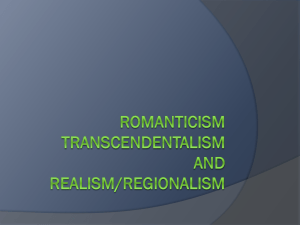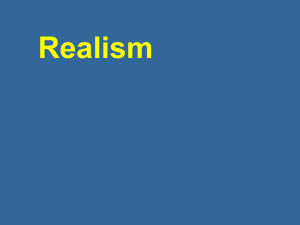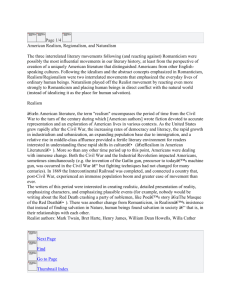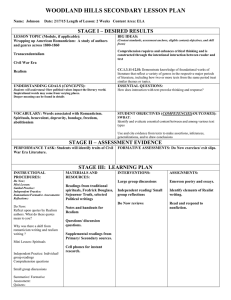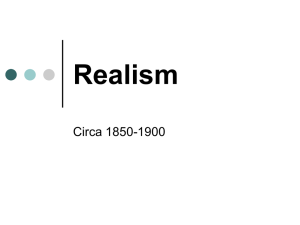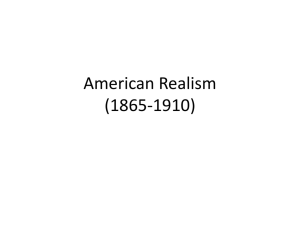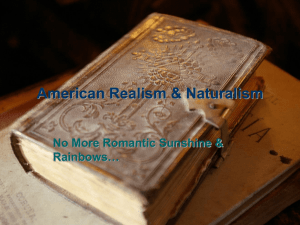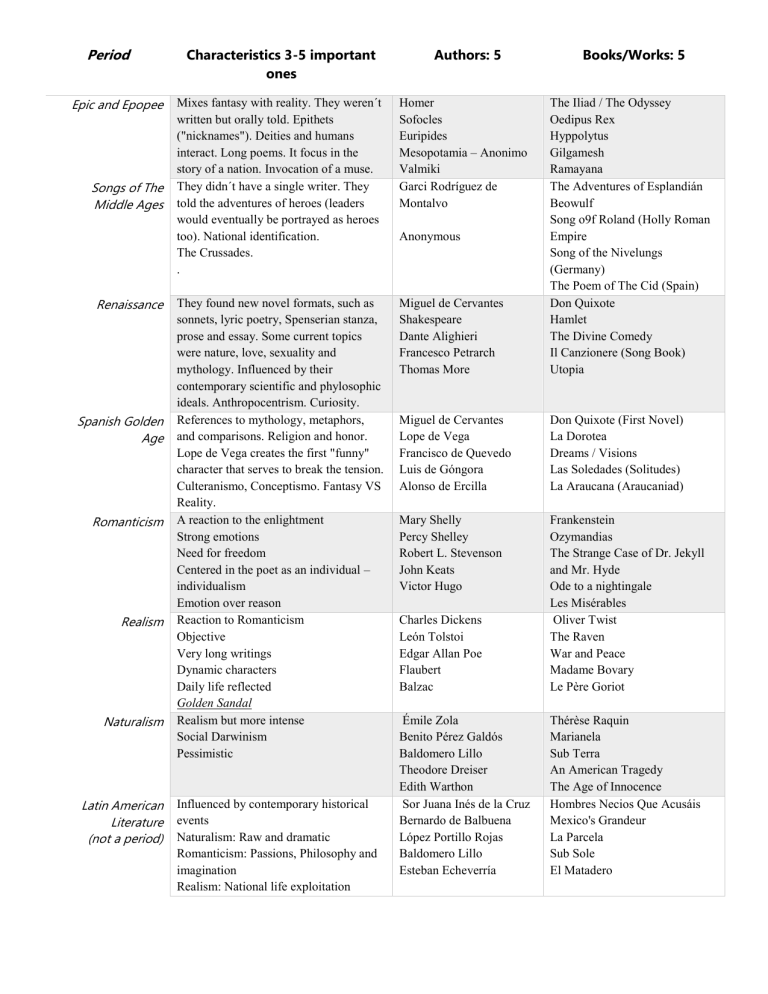
Period Epic and Epopee Songs of The Middle Ages Renaissance Spanish Golden Age Romanticism Realism Naturalism Latin American Literature (not a period) Characteristics 3-5 important ones Authors: 5 Books/Works: 5 Mixes fantasy with reality. They weren´t written but orally told. Epithets ("nicknames"). Deities and humans interact. Long poems. It focus in the story of a nation. Invocation of a muse. They didn´t have a single writer. They told the adventures of heroes (leaders would eventually be portrayed as heroes too). National identification. The Crussades. . Homer Sofocles Euripides Mesopotamia – Anonimo Valmiki Garci Rodríguez de Montalvo They found new novel formats, such as sonnets, lyric poetry, Spenserian stanza, prose and essay. Some current topics were nature, love, sexuality and mythology. Influenced by their contemporary scientific and phylosophic ideals. Anthropocentrism. Curiosity. References to mythology, metaphors, and comparisons. Religion and honor. Lope de Vega creates the first "funny" character that serves to break the tension. Culteranismo, Conceptismo. Fantasy VS Reality. A reaction to the enlightment Strong emotions Need for freedom Centered in the poet as an individual – individualism Emotion over reason Reaction to Romanticism Objective Very long writings Dynamic characters Daily life reflected Golden Sandal Realism but more intense Social Darwinism Pessimistic Miguel de Cervantes Shakespeare Dante Alighieri Francesco Petrarch Thomas More The Iliad / The Odyssey Oedipus Rex Hyppolytus Gilgamesh Ramayana The Adventures of Esplandián Beowulf Song o9f Roland (Holly Roman Empire Song of the Nivelungs (Germany) The Poem of The Cid (Spain) Don Quixote Hamlet The Divine Comedy Il Canzionere (Song Book) Utopia Miguel de Cervantes Lope de Vega Francisco de Quevedo Luis de Góngora Alonso de Ercilla Don Quixote (First Novel) La Dorotea Dreams / Visions Las Soledades (Solitudes) La Araucana (Araucaniad) Mary Shelly Percy Shelley Robert L. Stevenson John Keats Victor Hugo Charles Dickens León Tolstoi Edgar Allan Poe Flaubert Balzac Frankenstein Ozymandias The Strange Case of Dr. Jekyll and Mr. Hyde Ode to a nightingale Les Misérables Oliver Twist The Raven War and Peace Madame Bovary Le Père Goriot Émile Zola Benito Pérez Galdós Baldomero Lillo Theodore Dreiser Edith Warthon Sor Juana Inés de la Cruz Bernardo de Balbuena López Portillo Rojas Baldomero Lillo Esteban Echeverría Thérèse Raquin Marianela Sub Terra An American Tragedy The Age of Innocence Hombres Necios Que Acusáis Mexico's Grandeur La Parcela Sub Sole El Matadero Influenced by contemporary historical events Naturalism: Raw and dramatic Romanticism: Passions, Philosophy and imagination Realism: National life exploitation Anonymous North American Literature (it means U.S.A.) Generación del 98 Modernismo (Latin America) Avant Garde (Vanguardias) Post Modernism Quick and easy way to write North American Realism Abundant imagination Portrayed important figures like Washington as heroes. Rural Experimental Complicated language Rebellion, politics & social criticism “Make Spain Great Again” Edgar Allan Poe Mark Twain Herman Melville Henry James William Dean Howells Machado Miguel de Unamuno Azorín Pío Baroja Ángel Gavinet The Black Cat Huckleberry Finn Moby Dick The Mask of Red Death Tom Sawyer Soledades Niebla El viaje de Don Quijote The Quest España filosófica y contemporánea Juventud Divino Tesoro Serenidad Al Sol y Bajo la Luna Veinte poemas de amor y una canción desesperada Versos Libres To Make a Dadaist Poem Ulysses El libro de los seres imaginados El Candelabro de los Siete Brazos Siete cuentos Mexicanos All about poetry Creative freedom Literature without nationality Exotic subjects into stereotypes Rubén Darío Amado Nervo José Juan Tablada Pablo Neruda José Martí Stream of conciousness Interior monologue Automatic Writing Break the traditional Being “ahead of your time”. Expressionism: Germany 1905. Emotional and spiritual experience of life. Keep it away from the Utopia. Dadaism: Against traditional and conventional stuff. Anti – dogmatism. Creationism: Abstraction. The poet must stop trying to imitate nature. Poetry should generate naturally. Stridentism: Dynamic nature of modern world. Fuck logic. Mexican M. Futurism: Rebellion of intellectuals to cultural boredom. Nietzsche. Anarchist. Surrealism: Subconscious, dreamy, imagination Ultraism: Simple, gentle, not ostentatious De Stijl: Basic Shapes, Lines Tristan Tzara James Joyce Jorge Luis Borges Rafael Cansinos-Assens Manuel Maples Arce Vicente Huidobro Unrealistic and untraditional Modern in a very extreme way Black humor, parody Absurdity Chaos and destruction. Contradiction, permutation, discontinuity. James Joyce Kurt Vonnegut Don DeLillo Anthony Burgess Julio Cortázar Italo Calvino Paul Auster Ulysses Slaughter House Five White noise A Clockwork Orange Hopscotch Horror: What we find physically horrifying Terror: Subtle, limited to the emotions, to the atmosphere. Incite fear and anxiety. Detective literature – Focused on the plot. Arthur Conan Doyle Agatha Cristhie Edgar Allan Poe Bram Stoker Carlos Fuentes Sherlock Holmes Murder at the Orient Express The Murders in the Rue Morgue Dracula Aura Not yet seen: Horror/Terror Science Fiction Provides Scientific / Pseudo – Scientific explanations for certain events, whether based on documentation or not. Imagine the impossible, based on science. Jules Verne Mary Shelly H.G. Welles Isaac Asimov Boom Latinoamericano Magical Realism Complex Narratives Funny All about time: External – chronological Internal – Explains each event, emotion, thought when doing an action. TIME IS RELATIVE. Marketing, or so they say. Julio Cortázar Carlos Fuentes Gabriel García Márquez Mario Vargas Llosa Juan Rulfo Journey to the Center of the Earth Frankenstein The Time Machine The War of The Worlds I, Robot Hopscotch Where the Air is Clear Cien Años de Soledad La Ciudad y Los Perros Pedro Páramo
